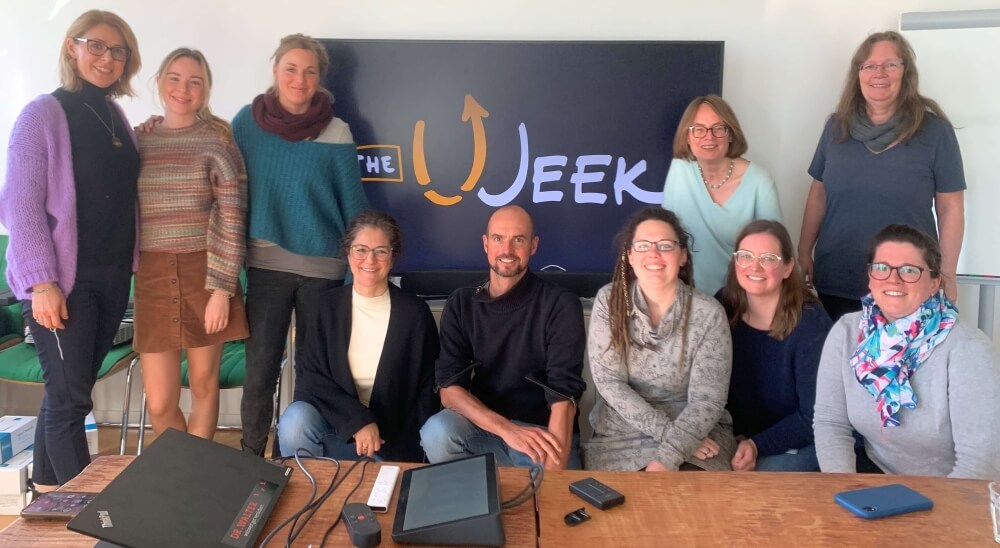DR-WALTER is climate aware and encourages employees to act sustainably
26.10.2023
We want to make our contribution as a company to solving the climate crisis. The greenhouse gases caused by us are compensated by investing in climate protection projects in Africa, Bolivia, Indonesia as well as in the reforestation of German mixed forests. In the long term, the aim is to further reduce our own emissions. We still have a lot of plans to achieve this.
Accounting of CO2 emissions
What is our carbon footprint, taking into account the principles and methods of the Greenhouse Gas Protocol (GHG)? With the help of the sustainability consultancy First Climate, we have calculated the energy and water consumption as well as the impact caused by the vehicle fleet, business trips and employee commuting. The emissions report for 2022 shows that DR-WALTER emitted 286,000 kilograms of carbon through its business activities.
Investment in climate protection projects
To offset these greenhouse gas emissions, DR-WALTER has now purchased carbon credits through the Berlin-based sustainability start-up Senken. The most effective offset project is Exomad's Green Biochar in Bolivia: this uses the power of biochar to remove carbon from the atmosphere and sequester up to 200,000 tonnes of CO2 annually. The Mai Ndombe REDD+ Project protects the second largest intact rainforest, the Congo Basin. By building and renovating schools, providing healthcare services and supporting food security, the project reduces the main causes of forest loss. Rimba Raya Biodiversity Reserve in Indonesia creates an economically viable alternative to deforestation. It provides a buffer zone between the palm oil industry and Tanjung Puting National Park, home to one of the last remaining wild populations of orangutans. Papariko - Vlinder restores degraded mangrove areas - biodiverse habitats of great ecological importance - and improves lives of vulnerable communities in Kenya. With DEUTIM CO2-Speicher, DR-WALTER supports the conservation of native forests. The reforestation measures serve to establish a healthy, climate-stable mixed forest in Rodenbach on the edge of the Rhine-Westerwald Nature Park.
„The Week“ as an incentive to further reduce the carbon footprint
Initiated by the Sustainability Team, the first 10 employees of DR-WALTER dedicated themselves to a special project for one week: The Week was created by a couple living in the USA and shows in three parts how biodiversity collapse, environmental pollution and global warming can perhaps still be stopped. After each of the one-hour films, the group had time to process their impressions in discussions and develop options for action.
The first part drastically showed the state of our planet and what will happen if we do nothing about climate change: Extinction of insects, fish, birds and mammals; massive disappearance of forests, wetlands, mangroves, coral reefs and topsoil; microplastics, medicines and pesticides in the human body as an immediate threat to health and fertility; uninhabitability of more and more regions due to heat, water shortages and natural disasters. By 2050, we and our children and grandchildren will either live in one of the vulnerable regions or where many have fled. Instead of 200 million climate refugees, there will be 1 billion. Poverty, hunger and wars are the immediate consequences. In addition, there are the tipping points that can accelerate everything and trigger chain reactions. For example, if the permafrost thaws and methane is released, everything will get out of control.
In episode two, "Deep Stories" explored how we got into this predicament: One important factor is the story that "more" would make us happier. Advertising and the profit interests of concerns have led to a fatal production system: Mining, manufacturing, disposing. We work more and more to consume more and have less and less time for fulfilling contacts. Breaking this cycle is in the hands of each individual.
The Week counts on this force and works with the image of a seesaw that tips over when a critical mass is reached. If enough people want decisive change, it can be achieved quickly. The film on the second day is full of "better stories." Regenerative farming in the U.S., the Superblocks - car-free zones in Barcelona, the carpet manufacturer Interface recycling old carpets and turning the production cycle into a closed system, the establishment of repair cafes...
The third and final episode motivates us with long lists of sustainable actions in our private lives, in companies or communities: buying second-hand goods, eating less meat or no meat at all, converting our own house to solar energy (or convincing the landlord to do so), using mailbox stickers to point out the possessions we would lend out, organizing climate strikes ...
We also have to question ourselves when it comes to travel. The motto here is: it is better to travel less and for longer. We consider intercultural exchange to be essential. If flights are unavoidable, they should be compensated. At DR-WALTER we are now committed to giving tips on what can be done to stop climate change. After The Week has arrived at the workplace, we want to take the project into families and circles of friends and further strengthen sustainable behavior.

